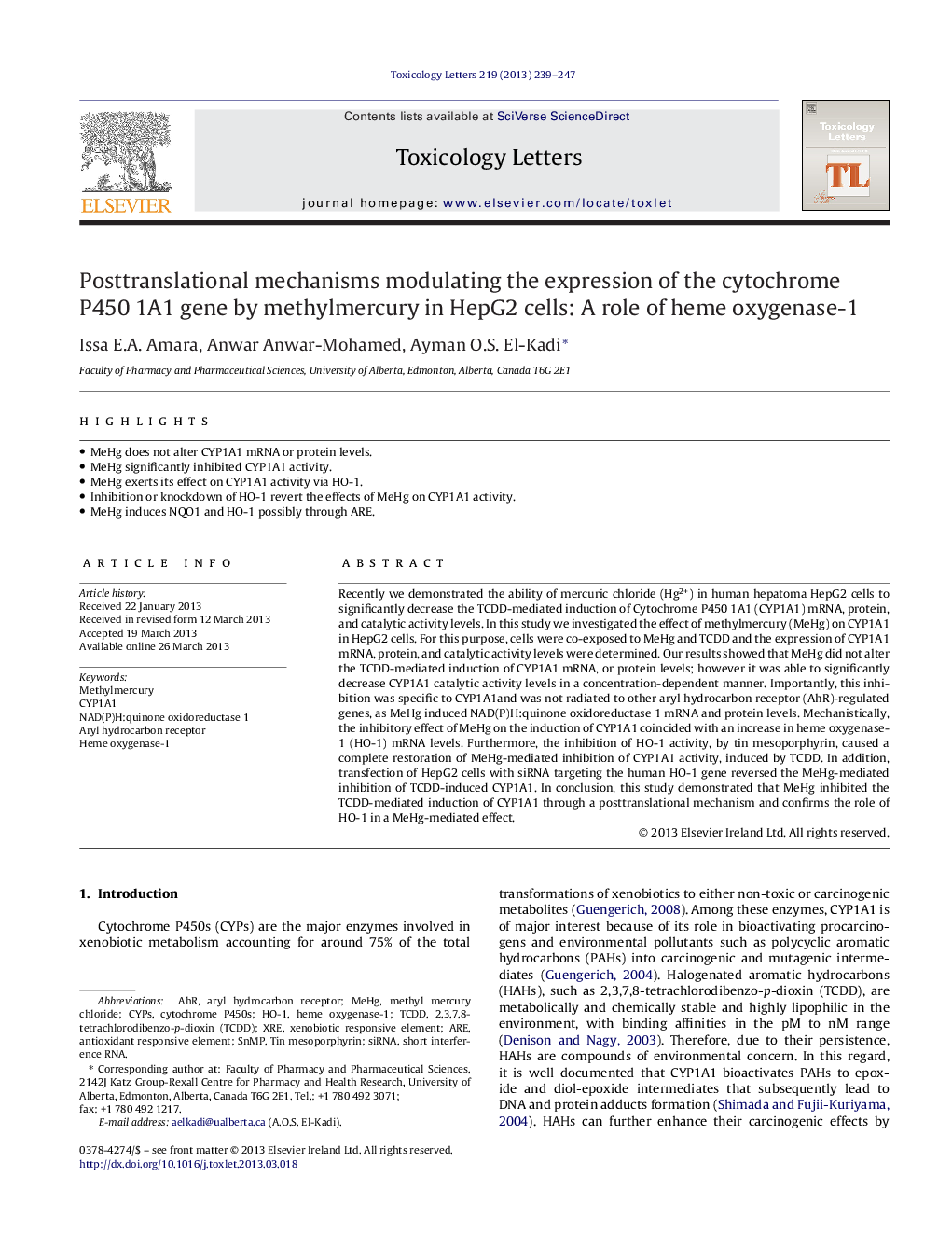| Article ID | Journal | Published Year | Pages | File Type |
|---|---|---|---|---|
| 5860612 | Toxicology Letters | 2013 | 9 Pages |
â¢MeHg does not alter CYP1A1 mRNA or protein levels.â¢MeHg significantly inhibited CYP1A1 activity.â¢MeHg exerts its effect on CYP1A1 activity via HO-1.â¢Inhibition or knockdown of HO-1 revert the effects of MeHg on CYP1A1 activity.â¢MeHg induces NQO1 and HO-1 possibly through ARE.
Recently we demonstrated the ability of mercuric chloride (Hg2+) in human hepatoma HepG2 cells to significantly decrease the TCDD-mediated induction of Cytochrome P450 1A1 (CYP1A1) mRNA, protein, and catalytic activity levels. In this study we investigated the effect of methylmercury (MeHg) on CYP1A1 in HepG2 cells. For this purpose, cells were co-exposed to MeHg and TCDD and the expression of CYP1A1 mRNA, protein, and catalytic activity levels were determined. Our results showed that MeHg did not alter the TCDD-mediated induction of CYP1A1 mRNA, or protein levels; however it was able to significantly decrease CYP1A1 catalytic activity levels in a concentration-dependent manner. Importantly, this inhibition was specific to CYP1A1and was not radiated to other aryl hydrocarbon receptor (AhR)-regulated genes, as MeHg induced NAD(P)H:quinone oxidoreductase 1 mRNA and protein levels. Mechanistically, the inhibitory effect of MeHg on the induction of CYP1A1 coincided with an increase in heme oxygenase-1 (HO-1) mRNA levels. Furthermore, the inhibition of HO-1 activity, by tin mesoporphyrin, caused a complete restoration of MeHg-mediated inhibition of CYP1A1 activity, induced by TCDD. In addition, transfection of HepG2 cells with siRNA targeting the human HO-1 gene reversed the MeHg-mediated inhibition of TCDD-induced CYP1A1. In conclusion, this study demonstrated that MeHg inhibited the TCDD-mediated induction of CYP1A1 through a posttranslational mechanism and confirms the role of HO-1 in a MeHg-mediated effect.
